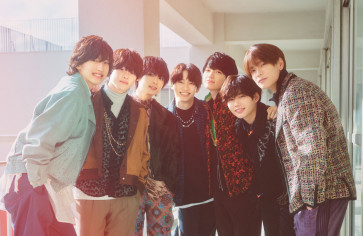Sometimes, it’s hard to know if we’re overworking. Between ambition, targets and that constant need to feel responsible, we end up spending weeknights replying to emails instead of watching Netflix just to feel like we’re staying on top of things.
And it’s not always about a manager breathing down your neck or spamming the WhatsApp group at 10 p.m. Sometimes, you do it by choice. Maybe you’re chasing a long-overdue promotion. Or maybe, as bleak as work can be, it still feels better than other parts of life.
Work offers structure, stability and the illusion of control. And even if all of that is theoretical, the anxiety of a stagnant relationship or unresolved family tension often feels heavier than a full inbox.
So, you turn to work.
It’s not rare to hear women in their 30s, disillusioned by dating or disheartened by unmet expectations, deciding to just focus on their careers. Or someone who can’t bear living at home but doesn’t have the financial cushion to rent, choosing instead to dive deeper into work to find solace, comfort or even meaning.
So are we working to achieve something? Or are we working to avoid something?

Thank you!
For signing up to our newsletter.
Please check your email for your newsletter subscription.
Maybe both. And maybe that’s exactly what makes it so hard to notice when we’re going too far.
We overwork for different reasons
Work means different things to each of us. It’s certainly not only about making money.
Many of us grew up watching our parents come home from work completely spent, shaping our view of work as something exhausting but necessary.
Our generation is now trying to rewrite that. We want work that is meaningful, purposeful, whatever that means.
Some people are lucky enough to turn passion into a profession. They become bakers, fitness trainers, wedding organizers. Their work gives them a sense of connection, acceptance and identity.
But not everyone gets that privilege. So then what? How do you find meaning at work if you're not particularly passionate to begin with?
As life unfolds, meaning often shows up in other forms. Maybe your work matters because you're saving up to buy your parents their dream house. Maybe it’s because you want to provide for your family. Maybe it’s the first time you've tasted independence. These different contexts shape why we show up every day.
The meaning doesn’t have to come from the work itself. Sometimes, it’s what the work makes possible.
And this drive, whatever fuels it, can make us push past what’s reasonable. We spend another hour, or another night, doing “just one more thing”.
Sometimes, it’s exactly what we need. Maybe we’re just in a season where life revolves around work.
Work can give us energy. It gives our days structure. It gives us direction.
“It’s more difficult to love what you do than to do what you love,” my father once told me.
So when someone finds meaning in their work, and expresses that through long hours and deep commitment, that can be a form of dedication. A good kind. But even that kind needs boundaries.
It won’t last
Work is fun until it isn't. The tricky part is, we often don’t realize when the shift happens.
When MAKA, the holding company of Toko Kopi Tuku, started, we knew from the very beginning that we wanted to put people at the center of everything. We wanted to build something based on real connection, between us and our customers, our neighbors, our suppliers and our staff. Something genuine, that hopefully uplifts lives in the process.
So when COVID hit, we weren’t just thinking about survival as a business. We were thinking about the thousands of families who relied on us. And the pressure was immediate.
We didn’t close our laptops. We couldn’t. It was back-to-back meetings, nonstop planning, one new idea after another. Until, eventually, the energy ran out. And when that happened, work started to take an emotional toll, on us, and on everyone around us.
When our minds are in a constant state of stress, our bodies will react. Insomnia, autoimmune issues, GERD, these aren’t just random illnesses. These are our bodies telling us that something is wrong, that something needs to stop. And when we ignore those signs, the cycle continues. We burn out, we fall behind, we feel the pressure even more and it all begins again.
(Shutterstock)
You’ve probably heard this many times, but it’s worth repeating: no matter how important or meaningful your work is, you still need to make time to rest.
There’s no one-size-fits-all answer to what counts as “too much” work. Everyone has a different capacity for stress. But regardless of where you are in your career, it’s essential to take real time off.
Rest will look different at 25 than it does at 45. For some, it means travel. For others, it just means closing the laptop before midnight. But the point remains: We don’t live to work. We work to live.
Care is teamwork
In operations, I’ve learned that even the smallest issue in someone’s personal life can ripple across an entire team. A fight at home, a bad breakup, the stress of financial pressure, it all shows up at work, whether we notice it or not.
Part of my role is to pay attention to these shifts, to sense when someone isn’t themselves, and to consider whether it’s something I should step into, or whether a team leader needs to step in first.
Of course, this doesn’t mean that we should be intrusive. It doesn’t mean we should offer solutions to problems that aren’t ours to solve. But it does mean that we need to build a workplace where people feel seen.
Know your team. Learn their stories, their ambitions, their fears. Be someone who genuinely cares about them.
And if you see someone overworking, don’t immediately assume they’re fine just because they’re performing. Maybe they don’t know how to ask for help. Maybe they’ve spent their whole lives being responsible for others and can’t imagine doing things any differently. Maybe they don’t feel safe enough to let go.
Offer help anyway.
Part of creating a healthy work culture is knowing your people well enough to recognize when something isn’t right and to know when to step in.
Work is never just about fulfilling tasks or meeting deadlines. Our emotional state shows up in everything we do, in how we lead, how we collaborate and how we show up.
And if you’re the one whose life currently revolves around work, it’s worth asking: Are you pouring this much into it because it truly fulfills you, or because it’s easier than facing something else?
The answer might not be easy. But naming it is a good place to start.
Adisti Ikayanti is the CEO of MAKA, the holding company behind Indonesian coffee and food service brands including Toko Kopi Tuku. With a background in organizational development and sustainability, she has guided MAKA’s growth to more than 1,300 employees while championing inclusive and culturally relevant expansion.
























